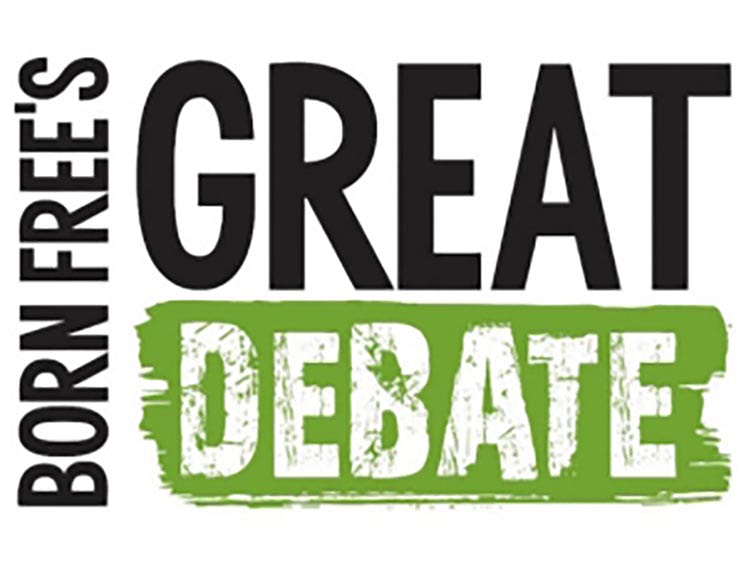Born Free launches schools initiative to engage future generation in saving our planet #BFGreatDebate

International wildlife charity Born Free has today announced the launch of its new educational ‘Great Debate’ initiative and is now calling out to schools across the UK to get involved.
Designed to provide teachers with the tools to engage their students in meaningful debates about key wildlife or environmental topics that will affect their future.
Born Free’s Great Debate will not only allow students to gain knowledge about the debate topic, but also offer them skills that will help them to research, frame and deliver an argument while becoming responsible citizens, reducing their impact on biodiversity and the environment.
“Future generations will have the tremendous responsibility of protecting our planet from a catastrophic decline in wildlife from which our ecosystem may never recover,” explains, Laura Gosset, Head of Education at Born Free.
She added, “There will be significant implications for wildlife, habitats and people alike. That’s why Born Free’s education team is committed to fostering a love for the natural world, increasing awareness of the threats and challenges facing wildlife and empowering young people to make sustainable choices.”
Each academic year Born Free’s Great Debate will focus on different topics, with 2019’s launch topic PLASTIC: Whose responsibility? Plastics in the environment impact environmental, wildlife and human health, with a legacy that could be centuries long. However, who is responsible for their ubiquitous use and poor disposal? If we are to change the world, who needs to lead the charge?
Science and Wildlife TV Presenter Liz Bonnin, who is backing Born Free’s Great Debate, said:
“The full impact of plastics on our environment is only just beginning to be discovered by scientists, but what they are saying from studies so far is that we cannot underestimate how damaging plastics can be if not properly used and managed, to our environment and to our natural world. I have seen Shearwater chicks bringing up plastics from their stomachs. I have seen seals entangled in fishing net. I have also seen how corals are dying because plastic is delivering toxic loads of bacteria to an already stressed ecosystem and, when it comes to our terrestrial wildlife, scientists are beginning to discover that the chemicals in and on plastic can be incredibly toxic. The more I learn about the scale of this problem and how it can impact our natural world, including human beings, the more I know that it’s important to act now, before it’s too late.
“It’s incredibly important to continue the discussions and the debates about plastic pollution and its impact on the environment. Not just in regard to the adults in the industries responsible for this crisis, and not just with adults and families, but also with children. In fact, children can often cut through the noise, see more clearly, and speak more honestly than us adults. I know how much my teachers inspired me, and how much they taught me, to believe in myself. That I could be, and do, anything I set my mind to. With Born Free’s resources, teachers will play a part in inspiring their students to be the change the planet needs.”
Born Free’s education team is providing schools with five FREE one-hour lesson plans, activities and resources, with key curriculum links for KS2, KS3 and KS4.
Schools can then host their debates at a time that suits them, however, if they complete all lessons and the debate by the end of the autumn term then their students’ feedback will be included in the official Born Free report, which will be presented to government to highlight the voice of the younger generation in regards to plastic.











Responses